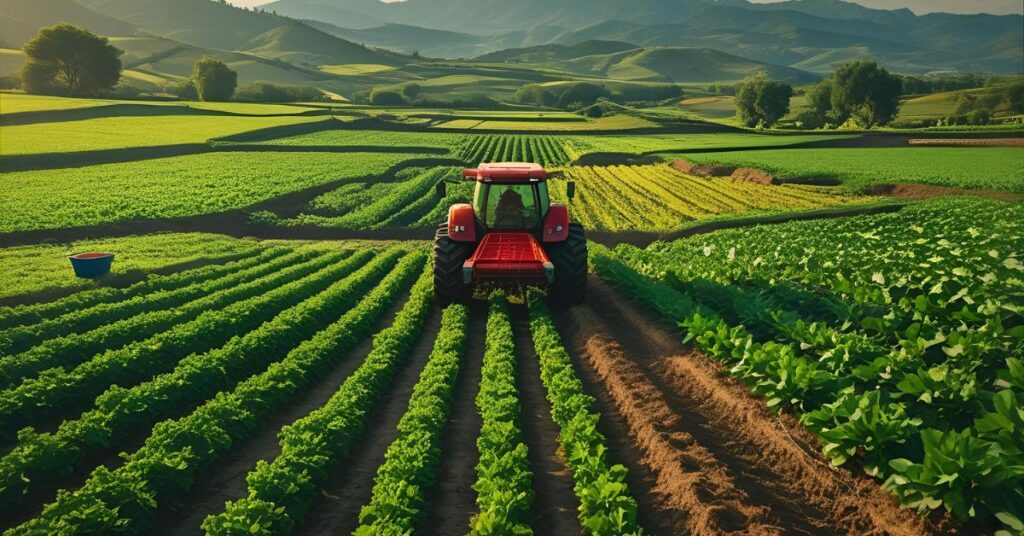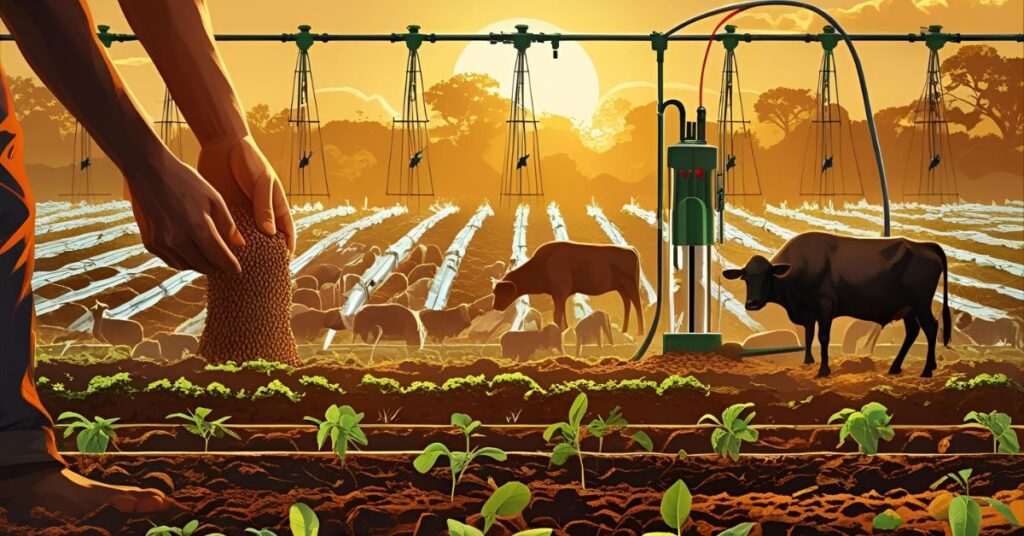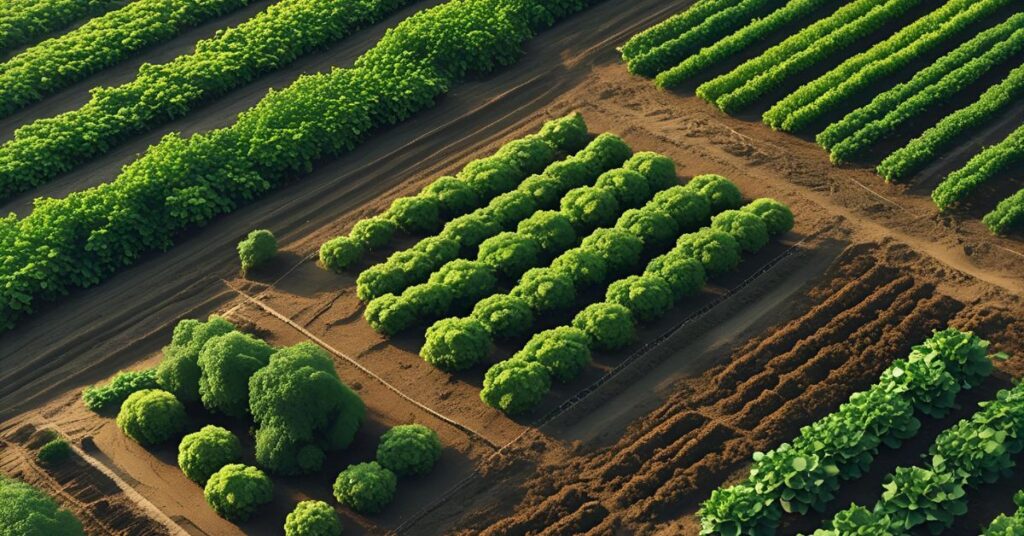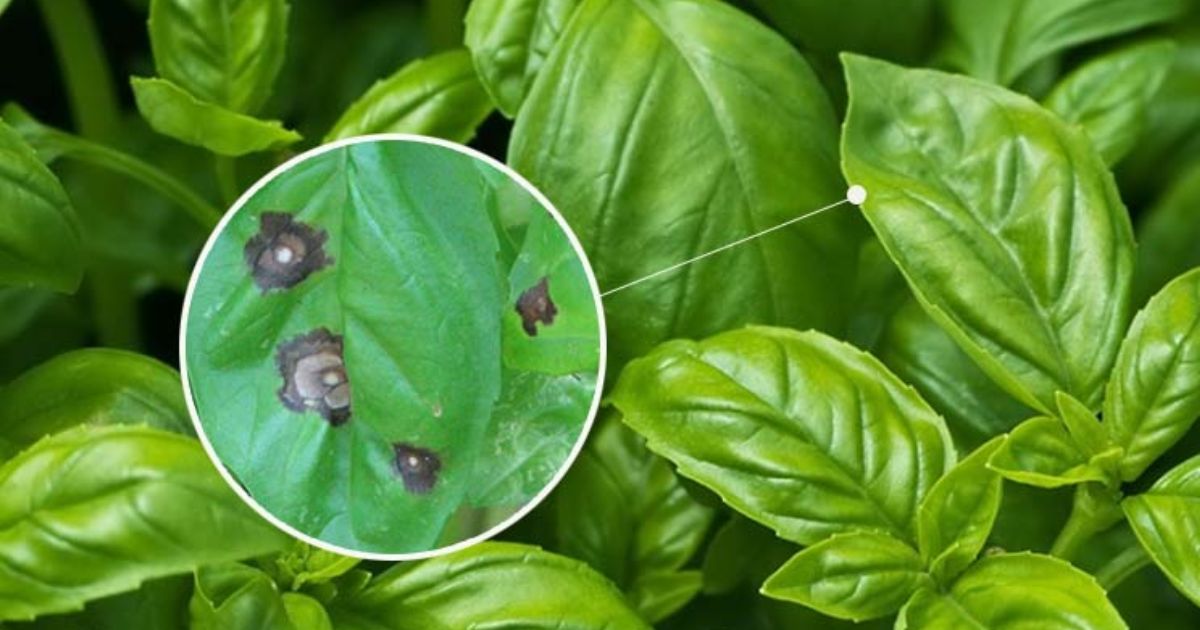In today’s rapidly changing world, sustainable farming has become essential to ensure food security while protecting our planet’s resources. One of the most effective ways to achieve this is through systematic agriculture — a methodical and planned approach to farming that optimises resource use and maximises productivity. By embracing systematic agriculture, farmers can not only increase crop yields but also promote environmental stewardship, making it a cornerstone for the future of sustainable farming.
This article explores the top benefits of systematic agriculture for sustainable farming, highlighting how this strategic approach helps conserve water, improve soil health, reduce environmental impact, and boost profitability. Whether you are a farmer, researcher, or sustainability enthusiast, understanding these benefits will provide valuable insights into how systematic agriculture can transform farming practices and help create a food system that is more robust and sustainable.
What is Systematic Agriculture?
Systematic agriculture is a well-organised and planned approach to farming that focuses on applying scientific principles, careful planning, and methodical practices to maximise efficiency and sustainability. Unlike traditional farming methods, which may rely heavily on intuition or routine practices, systematic agriculture uses data, technology, and research-backed strategies to manage every aspect of crop production—from soil preparation and planting to irrigation and harvesting—in a coordinated way.
The core principles of systematic agriculture definition of systematic agriculture in world history, include thorough planning, resource optimisation, continuous monitoring, and adaptive management. Farmers following this approach carefully analyse soil health, climate conditions, crop requirements, and pest risks before making decisions. They employ crop rotation, precision irrigation, pest control measures, and sustainable inputs to ensure that the land remains productive over the long term while minimising negative environmental impacts.
In contrast to traditional or random farming methods, which often involve planting crops without a detailed plan or systematic assessment, systematic agriculture emphasises deliberate actions based on evidence and technology. This shift helps reduce waste, improve yields, and foster sustainable use of natural resources, making it a vital practice for modern agriculture focused on sustainability and resilience.
Importance of Sustainable Farming Today

Modern agriculture faces significant environmental, economic, and social challenges that make sustainable farming more critical than ever. Environmentally, traditional farming practices often lead to soil degradation, water scarcity, loss of biodiversity, and increased greenhouse gas emissions—all of which threaten the long-term health of our ecosystems. Economically, farmers struggle with fluctuating market prices, rising input costs, and the financial risks posed by climate variability. Socially, there is growing pressure to satisfy the world’s rapidly growing population’s food needs while ensuring fair livelihoods for farming communities.
Sustainable farming addresses these complex challenges by promoting methods that preserve the environment, conserve natural resources, and support economic viability for farmers. It is necessary for resource protection because optimising water use, maintaining soil fertility, and reducing chemical inputs. Moreover, sustainable farming contributes to climate change mitigation by lowering carbon emissions through practices such as reduced tillage and carbon sequestration in soils. Most importantly, it enhances food security by ensuring stable and resilient crop production systems capable of feeding current and future generations without compromising the ability of the land to support agriculture in the long term.
In this context, adopting sustainable farming practices, including systematic agriculture, becomes essential to create a balanced approach that meets human needs while preserving the planet’s health.
Top Benefits of Systematic Agriculture for Sustainable Farming

Systematic agriculture offers numerous advantages that directly contribute to sustainable farming practices. By adopting a structured and data-driven approach, farmers can optimise their operations for both environmental and economic success. Here are the top benefits:
a. Efficient Resource Management
Systematic agriculture maximises the efficient use of vital resources such as water, soil, and nutrients. Through precise planning and monitoring, farmers can apply the right amount of water and fertilisers exactly where and when crops need them, significantly reducing waste. This targeted resource management not only conserves precious inputs but also minimises runoff and soil degradation, leading to healthier and more productive farmland.
b. Improved Crop Yields and Quality
By implementing planned crop rotation, regular soil analysis, and continuous crop monitoring, systematic agriculture boosts both the quantity and quality of harvests. Crop rotation helps break pest cycles and improves soil structure, while soil testing ensures balanced nutrient supply tailored to specific crop needs. These practices lead to more consistent yields and better-quality produce, meeting market demands reliably.
c. Enhanced Soil Health and Fertility
Systematic agriculture promotes techniques such as crop diversification, cover cropping, and organic matter management that are essential for maintaining soil vitality. Cover crops protect soil from erosion, increase organic content, and support beneficial microorganisms. Over time, these practices improve nutrient cycling, reduce dependency on synthetic fertilisers, and preserve the land’s long-term fertility.
d. Reduced Environmental Impact
One of the key sustainability benefits is the reduced environmental footprint of farming operations. Systematic agriculture minimises the use of harmful chemicals by encouraging integrated pest management and biological controls. It also lowers greenhouse gas emissions through better soil and crop management. This approach helps maintain biodiversity and supports healthier ecosystems around farmland.
e. Cost-Effectiveness and Profitability
Through careful planning and efficient input use, systematic agriculture helps farmers cut unnecessary expenses. By avoiding the over-application of water, fertilisers, and pesticides, operational costs decrease. Furthermore, sustainable farming practices increase long-term farm profitability by maintaining soil health and ensuring stable yields, reducing the risks of costly crop failures.
f. Risk Management and Resilience
Systematic agriculture improves farm resilience against climate variability, pests, and diseases by employing data-driven decision-making tools. Farmers can anticipate risks using weather forecasts, soil moisture sensors, and pest monitoring systems, allowing timely interventions. This proactive management reduces losses and stabilises production even under challenging conditions.
g. Encourages Adoption of Technology and Innovation
Systematic agriculture naturally integrates modern technologies such as precision agriculture tools, drones, sensors, and artificial intelligence. These innovations enable detailed data collection and real-time monitoring, allowing farmers to make smarter, sustainability-focused decisions. The adoption of technology enhances productivity, resource efficiency, and environmental protection simultaneously.
If you’ve ever wondered why do tomatoes split, check out our detailed guide to prevent this common issue.
Real-World Examples of Systematic Agriculture Success

Systematic agriculture is not just a theoretical concept—it has been successfully implemented around the world, delivering measurable benefits in productivity and sustainability. Here are some notable examples:
1. The Netherlands: Precision Farming for High Yields
The Netherlands, known for its advanced agricultural sector, has widely adopted systematic agriculture techniques such as precision farming and controlled environment agriculture. Dutch farmers use data-driven irrigation systems, soil sensors, and automated nutrient management to optimise crop production. As a result, the country achieves some of the highest crop yields per hectare globally while using 50% less water and fertilisers compared to traditional farming. This efficiency has helped the Netherlands maintain its position as a leading exporter of vegetables and flowers, demonstrating how systematic agriculture supports both profitability and sustainability.
2. India: Systematic Rice Intensification (SRI)
In India, many farmers have embraced the Systematic Rice Intensification (SRI) method, which involves careful planting, water management, and organic fertilisation. SRI has led to yield increases of 20-50% in some regions, along with reduced water use by up to 30%. The method also improves soil health by promoting aerobic conditions, reducing methane emissions, and encouraging biodiversity in paddy fields. This success highlights how systematic agriculture principles can be adapted to local contexts for sustainable benefits.
3. Kenya: Conservation Agriculture
In Kenya, conservation agriculture practices—such as minimum tillage, crop rotation, and cover cropping—have been systematically applied to restore degraded soils and improve food security. Farmers using these methods have reported yield improvements of 25-40% over conventional practices, alongside enhanced soil organic matter and water retention. These improvements contribute to greater resilience against drought and climate variability, critical factors for sustainable farming in the region.
4. United States: Integrated Pest Management (IPM)
Many farms across the U.S. have integrated IPM strategies as part of their integrated pest management approach. By combining pest monitoring, biological controls, and targeted pesticide application, farms have reduced pesticide use by up to 60%, lowering costs and environmental impact. This approach not only protects crop health but also promotes biodiversity and reduces chemical residues in food and soil.
These examples demonstrate how systematic agriculture can be effectively tailored and scaled across different climates and farming systems, delivering tangible gains in productivity, resource conservation, and environmental protection. Embracing such approaches worldwide is essential to meeting the growing demand for food sustainably.
How to Start Implementing Systematic Agriculture

Adopting systematic agriculture can transform your farming operation into a more efficient, sustainable, and profitable venture. Here are practical steps for farmers and agricultural businesses looking to get started:
1. Assess Your Current Farming Practices
Begin by evaluating your existing farm management methods, including soil health, water use, crop varieties, and pest control strategies. Identifying areas that need improvement will help you develop a clear plan tailored to your farm’s unique conditions.
2. Develop a Comprehensive Farm Plan
Create a detailed farm plan that incorporates crop rotation schedules, irrigation management, nutrient application, and pest control measures. This plan should be based on scientific data, soil tests, and climate information to optimise resource use and maximise yields sustainably.
3. Invest in Training and Education
Continuous learning is key to thriving in systematic agriculture examples. Attend workshops, online courses, and training programs focused on sustainable farming techniques and precision agriculture. Many agricultural extension services and NGOs offer free or low-cost resources designed to build capacity among farmers.
4. Adopt Suitable Technologies
Integrate modern tools such as soil moisture sensors, GPS-guided equipment, drones for crop monitoring, and farm management software. These technologies enable precise input application, real-time data collection, and better decision-making, which are essential components of systematic agriculture.
5. Start Small and Scale Gradually
If adopting new methods and technologies seems overwhelming, begin with a pilot plot or a limited section of your farm. This allows you to test techniques, monitor results, and make adjustments before scaling up across your entire operation.
6. Collaborate with Experts and Peers
Engage with agricultural experts, local cooperatives, and fellow farmers who have experience with systematic agriculture meaning. Sharing knowledge and experiences can accelerate learning and improve implementation outcomes.
7. Monitor, Evaluate, and Adjust
Regularly track your farm’s performance using key sustainability metrics such as water usage, crop yield, soil quality, and input costs. Use this data to refine your practices, address challenges, and continuously improve your system.
By following these practical steps, farmers and agricultural businesses can effectively implement sustainable farming practices and contribute to a more sustainable and productive future. Embracing innovation, education, and careful planning is essential to unlock the full potential of this farming approach.
Stay updated with practical gardening guides and sustainable practices by exploring In Garden Betty on our blog.
Conclusion
Systematic agriculture offers a powerful pathway to achieving sustainable farming by maximising resource efficiency, improving crop yields, enhancing soil health, and reducing environmental impact. Its methodical and data-driven approach not only increases profitability and resilience but also supports long-term ecological balance and food security. As the challenges facing modern agriculture continue to grow, adopting sustainable agricultural practices becomes increasingly critical for farmers and farming businesses aiming to build a sustainable future.
By embracing systematic farming methods, you can contribute to healthier soils, more productive crops, and a greener planet. Now is the time to take action—start integrating planned, innovative, and sustainable practices into your farm management to reap the many benefits of systematic agriculture. Through collaboration, we can establish a food system that is more robust and sustainable for future generations.
FAQs:
1. What is systematic agriculture?
Systematic agriculture is a planned and methodical approach to farming that uses scientific principles, data, and technology to optimise resource use, improve crop yields, and promote sustainability.
2. How does systematic agriculture benefit sustainable farming?
It improves resource efficiency, enhances soil health, reduces environmental impact, increases crop quality and yield, and supports long-term farm profitability and resilience.
3. Can systematic agriculture reduce water usage on farms?
Yes, by using precise irrigation techniques and monitoring soil moisture levels, systematic agriculture helps conserve water and reduces waste significantly.
4. What technologies are commonly used in systematic agriculture?
Technologies such as soil sensors, GPS-guided equipment, drones, farm management software, and data analytics are widely used to support systematic agriculture practices.
5. Is systematic agriculture suitable for small-scale farmers?
Absolutely. Systematic agriculture can be scaled to fit farms of all sizes, and starting with small pilot projects can help farmers gradually adopt these methods.





